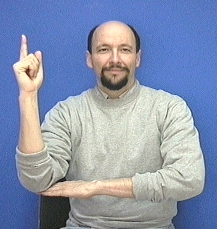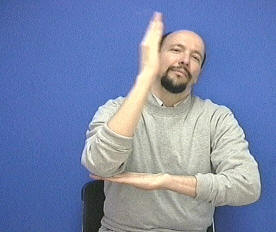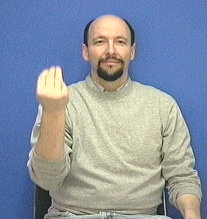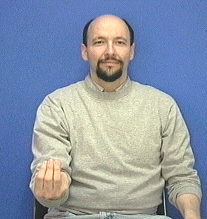ASL Linguistics: Temporal Adverbs
What you need to know:
Many time signs can be modified to become adverbs.
For example, do you recall the signs for TOMORROW, WEEK, and MONTH?
Each of those signs can be changed into adverbs by repeating the sign.
TOMORROW repeated becomes DAILY
WEEK repeated becomes WEEKLY
MONTH repeated becomes MONTHLY (or "rent")Also, you can change signs like DAY, MORNING, and NIGHT to mean, "all day," "all morning," and "all night" by doing the signs bigger, using a longer movement, and adding a slight arching movement of the head.
For example:
DAY
becomes: "ALL-DAY"

The sign annually is a modified version of "YEAR" that changes from an "S" hand into an "index" hand:
Animation: Annually:
MONDAY can be changed into EVERY-MONDAY by using a downward sweep instead of a circular movement.
(Note: Each of the days of the week can be made plural by holding the sign a bit higher, then dragging it straight down a foot or two.)
Student Questions:In a message dated 4/20/2005 6:58:19 AM Pacific Daylight Time, a student @hotmail.com writes:
What are temporal adverbs?Temporal adverbs are signs or modifications to the movements of signs that change the meaning of time signs to make them become adverbs. For example repeating the movement of the sign "MONTH" to change it into "MONTHLY."Note:
1. Habitual Time: every-day, every-Monday, ...
2. Time Duration: all-day, all-night, ...










